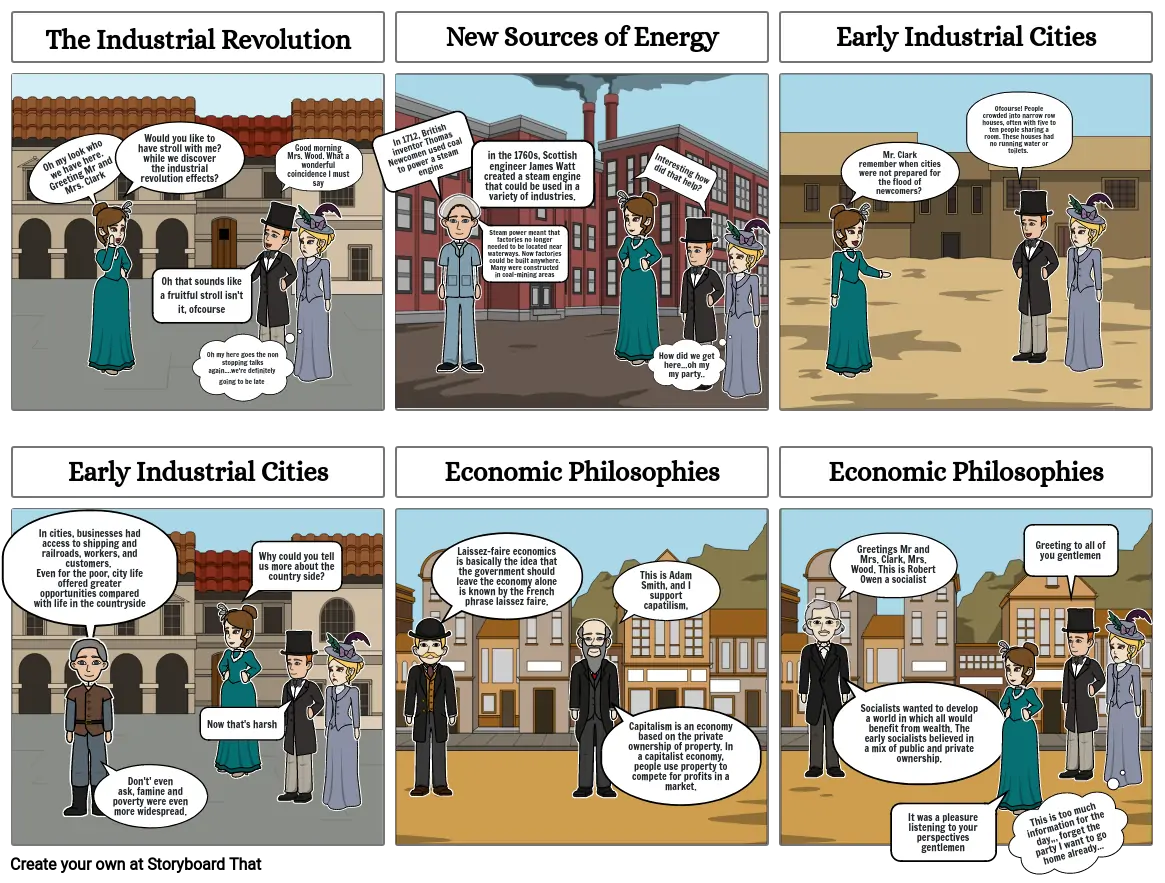The Industrial Revolution

Storyboard Text
- The Industrial Revolution
- Oh my look who we have here. Greeting Mr and Mrs. Clark
- Would you like to have stroll with me? while we discover the industrial revolution effects?
- Oh that sounds like a fruitful stroll isn't it, ofcourse
- Oh my here goes the non stopping talks again....we're definitely going to be late
- Good morning Mrs. Wood. What a wonderful coincidence I must say
- In 1712, British inventor Thomas Newcomen used coal to power a steam engine
- New Sources of Energy
- in the 1760s, Scottish engineer James Watt created a steam engine that could be used in a variety of industries.
- Steam power meant that factories no longer needed to be located near waterways. Now factories could be built anywhere. Many were constructed in coal-mining areas
- Interesting how did that help?
- How did we get here...oh my my party..
- Early Industrial Cities
- Mr. Clark remember when cities were not prepared for the flood of newcomers?
- Ofcourse! People crowded into narrow row houses, often with five to ten people sharing a room. These houses had no running water or toilets.
- In cities, businesses had access to shipping and railroads, workers, and customers. Even for the poor, city life offered greater opportunities compared with life in the countryside
- Early Industrial Cities
- Now that's harsh
- Why could you tell us more about the country side?
- Economic Philosophies
- Laissez-faire economics is basically the idea that the government should leave the economy alone is known by the French phrase laissez faire.
- This is Adam Smith, and I support capatilism,
- Economic Philosophies
- Greetings Mr and Mrs. Clark, Mrs. Wood. This is Robert Owen a socialist
- Socialists wanted to develop a world in which all would benefit from wealth. The early socialists believed in a mix of public and private ownership.
- Greeting to all of you gentlemen
- Don't' even ask, famine and poverty were even more widespread.
- Capitalism is an economy based on the private ownership of property. In a capitalist economy, people use property to compete for profits in a market.
- It was a pleasure listening to your perspectives gentlemen
- This is too much information for the day,,, forget the party I want to go home already...
Over 30 Million Storyboards Created

